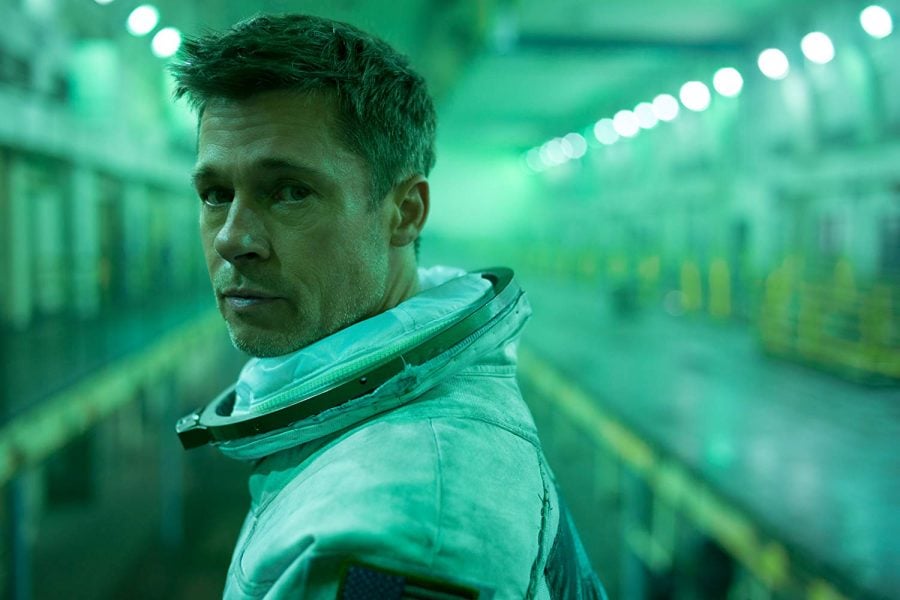James Gray’s ‘Ad Astra’ explores the nuance of the human psyche
Brad Pitt, who plays Roy McBride, leads the audience on a self-reflective journey.
Films set in space lend the perfect backdrop to allow filmmakers to explore the deepest desires and most unkempt aspects of the human psyche. Kubrick did it. Speilberg did it. Cuaron did it. Nolan did it. Chazelle did it. And just earlier this year, Claire Denis scared the hell out of all of us when she did it with her sublime “High Life.” Now one of Hollywood’s most consistently outstanding and underrated auteurs, James Gray follows up his wildly ambitious and masterful “Lost City of Z” with his try at the existential space drama, “Ad Astra.” Something even more ambitious and more masterful than he’s ever made.
“Ad Astra” stars Brad Pitt as Major Roy McBride, an astronaut living in the shadow of his revered and believed dead father Clifford McBride (Tommy Lee Jones). After a catastrophic power surge begins to threaten the further existence of humans in the solar system, the government has reasonable cause to believe that maybe Clifford is alive and the cause of these surges. Roy sets out on an intergalactic quest across moons and planets to not only save the human race but also find something deeper within himself through his father.
It plays out like “Interstellar” by way of “Apocalypse Now,” fully intact with serene expressive imagery and poetic soliloquy voice-overs and a cast of tremendous character actors (Donald Sutherland, Ruth Negga, John Ortiz, etc.) being day-players in what is really an intimate character piece placed on an awe-inspiringly huge scale.
Gray makes a real sensory experience with his cosmic setting thanks to Hoyte Van Hoytema’s serene cinematography and Max Richter’s riveting compositions. I found it next to impossible to be bored by such a film that is so unafraid to be experimental with its sights and sounds. It deeply entrances you while you watch, but the thing that makes “Ad Astra” so resonant and so powerful that it rings deep within your soul for days and possibly even weeks after you watch it, is the pure and mighty beating heart that lies within it.
That beating heart comes in the shape of Pitt’s sensitive, vulnerable and subversive portrayal of Roy, a man who on the outside seems like the perfect All-American intergalactic hero. On the inside, he carries the profound burden of that image and the emptiness that comes from searching for meaning outside of ourselves. On top of this, Gray makes this a bit of a spiritual successor to “Lost City of Z” as well also digging deep into the basic human need to explore and the longing to be something more than what you are.
Gray bites off a lot with this film and right when one may think he can’t chew it all, the heart and the scope and the story all culminate into a cathartic and sensational climax. The truly great thing about “Ad Astra” is that for all of its grand brush strokes and defining idiosyncrasies, it still ends up in a bubble of being a personal self-reflexive journey for Gray, Pitt and the audience. One about the journey from simply just being to coming into your own as a person. It’s a deep plunge into the unknown, but instead of being about what exists beyond ourselves in the universe, it evolves into understanding what grounds us to our own link in the world.
What first poses itself as an epic space journey ends up as a soft contemplative and empathetic film about the lengths and the need to express emotion and care for one another. It’s reasons like these that I feel forever fortunate that we have people like James Gray inside Hollywood managing to get risky films like this, “The Lost City of Z” and “We Own the Night” made in the studio system. For what it’s worth to them, “Ad Astra” is his biggest and best achievement yet.















